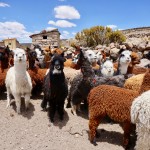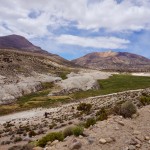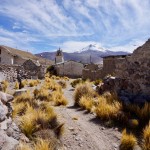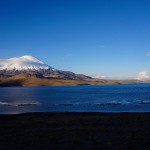Talia Anderson

Tree Rings, Climatic Change, and Water Resource Availability in the Altiplano Plateau of the Central Andes
-
Project Proposal:
With the support of Fulbright, I propose to use dendrochronology to study the hydroclimate and variability of water-related parameters in the Altiplano region with Dr. Duncan Christie, professor of Forest Sciences and Natural Resources at the Universidad Austral de Chile in Valdivia. Because many of the current measurements used to make resource management decisions were not recorded until the mid-twentieth century, our tree-ring analysis of past hydrological conditions will provide us with a more comprehensive picture of the Altiplano climate, its historical patterns of precipitation, and how the region might respond to these new environmental stresses. Our study will help this region make more informed decisions and will serve as a foundation to detect future climate shifts.
Final Report:
As a current master’s student, I have been able to make major strides in my thesis research. Two of my Chilean mentors will serve as members of my thesis committee. I am confident that these relationships will continue to strengthen and that there will be opportunity for future collaboration. I have been able to connect with the network of Chilean researchers in my field of study and beyond. During the time of my grant, I have been able to take courses and gain new skills that are useful for my current research, and are also marketable skills when I begin to look for jobs. Personally, I have developed lasting friendships and feel much more confident in my ability to use Spanish in formal and informal settings.
I spent the majority of time in Chile working in the Laboratorio de Dendrocronología at the Universidad Austral de Chile. My research is dedicated to understanding how bofedales in the Chilean Altiplano have changed over time. I use satellite imagery to monitor changes in greenness and to assess how certain aspects of climate like precipitation and rainfall influence the productivity of the bofedales. We identified 5,665 bofedales and we have data that spans from 1985-2017, with 30 meter resolution. My hope is that this research can help inform how bofedales are responding to less frequent rainfall events, and a warming temperatures, and what this might mean for the important water resource in the future. We are still in the process of data analysis, but are excited about the potential results. I am working on two academic publications with my collaborators.
-
Proposal:
-




